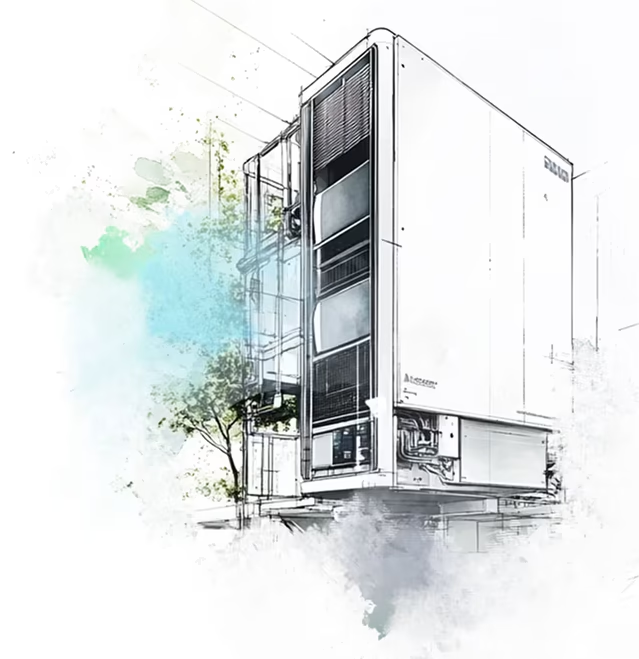Further Education (FE) colleges are an essential part of the UK’s post-16 education system, offering practical learning and vocational training that directly supports local and national workforce needs.
Unlike universities, which often focus on academic degrees, FE colleges specialise in hands-on education. Their main purpose is to prepare students for employment, further training, or apprenticeships by developing skills that match real-world job requirements. Courses typically include technical and vocational qualifications such as BTECs, NVQs, & the NOCN Group diplomas, and T Levels. Many FE colleges also offer adult learning, basic literacy and numeracy, and higher technical qualifications like HNCs and HNDs.
In the transition to a greener economy, FE colleges are well-placed to deliver training in construction, engineering, and low-carbon technologies. They act as local training hubs, working with employers, local authorities, and training providers to build a pipeline of skilled workers.
The UK Government’s Local Skills Improvement Plans (LSIPs) identify FE colleges as key to closing the skills gap in green industries. When courses are aligned with industry demand, learners leave college ready to contribute to Net Zero goals and green construction projects.
To meet this challenge, colleges need investment in modern facilities, experienced trainers, and updated course content that reflects emerging technologies such as solar PV, air source heat pumps, and battery storage. Partnerships with organisations like Quantum Training help FE colleges access this expertise and deliver future-ready skills training.
FE colleges are more than just places of learning. They support regional development, social mobility, and the UK’s climate targets, preparing the next generation to thrive in a fast-changing world.
Delivering Hands-On Green Skills Training in FE Settings
Further Education (FE) colleges play a pivotal role in preparing the workforce for the UK’s green transition. As the country accelerates toward its Net Zero 2050 goal, the construction and built environment sectors face mounting pressure to decarbonise. Green skills, especially in low-carbon technologies and retrofit, are essential. For FE colleges to deliver high-impact green training, they must be equipped with the right infrastructure, tools, curriculum, and partnerships.
What FE Colleges Need to Deliver Hands-On Green Skills Training
1. Industry-Standard Infrastructure
FE colleges must move beyond traditional classrooms and invest in hands-on training environments that mirror the real world. This means constructing purpose-built low-carbon and retrofit bays and demonstration units. These facilities allow learners to work with real systems like air source heat pumps (ASHPs), battery storage, EV charging, Solar thermal and solar PV. Learners who train in these environments gain confidence and are better prepared to meet employer expectations from day one.
2. Modern Equipment and Technology
Training providers must provide access to live and functioning equipment, not mock-ups or outdated machinery. This includes:
– Heat pump systems
– MVHR (Mechanical Ventilation with Heat Recovery) units
– Blower door kits
– Battery storage systems
Such tools help students develop diagnostic and installation skills in alignment with PAS 2030 and other industry standards.
3. A Curriculum Aligned to Policy and Industry
The curriculum must evolve to reflect changes in government regulation, employer need, and technology. Courses should integrate:
– PAS 2035 frameworks
– Part L and Part F Building Regulations
– Net Zero Construction strategies
– Energy Performance Certificates (EPC) guidance
– Whole-house retrofit methodology
Training should focus on both foundational theory and applied learning, with a clear route to qualifications and employment.
4. Skilled Trainers and Ongoing CPD
Trainers must have current knowledge of low-carbon systems and retrofit techniques. This often requires tailored CPD programmes, such as Quantum’s Train-the-Green/RetrofitTrainer support. Many colleges struggle to recruit professionals with retrofit experience. Quantum bridges this gap by supporting educators in staying up to date with the latest low-carbon and retrofit technologies.
5. Strong Links to Employers
Colleges cannot operate in isolation. Training must be shaped by employer need, with pathways that lead to real jobs. Colleges should engage with local contractors, councils, housing associations, and retrofit firms to co-design training solutions. This boosts learner confidence and job outcomes while reducing the mismatch between skills taught and skills required.
Bridging the Regional Divide in Access to Green Skills
As the UK accelerates its shift toward a low-carbon economy, not all regions are progressing at the same pace. A key issue facing further education (FE) colleges is the uneven access to green skills training across the country. While some urban centres and high-investment regions are rapidly building capabilities, rural and coastal communities’ risk being left behind.
This regional disparity has been highlighted in multiple Local Skills Improvement Plans (LSIPs), which identify gaps in retrofit, renewable energy, and electric vehicle infrastructure training, particularly outside the South East and major metropolitan areas. In many parts of the UK, learners simply do not have access to specialist facilities, or the courses needed to enter green industries.
Without targeted investment, this uneven access threatens to widen skills shortages in key sectors like construction, engineering, and energy. It also places further strain on local economies, which may be unable to participate fully in the UK’s Net Zero transition due to a lack of skilled labour.
To address this, FE colleges need support to build regionally relevant training offers that reflect their local housing stock, climate needs, and economic potential. For example:
- Colleges in coastal towns could focus on offshore wind energy and marine renewables.
- Colleges in rural areas may specialise in sustainable agriculture and heat pump retrofits.
- Urban colleges could prioritise smart grid systems, battery storage, and energy efficiency in high-density housing.
Quantum Training works closely with colleges and regional partners to build this local capacity. From Cornwall to Greater Manchester, our installations and curriculum support help colleges adapt to the skills needed in their own communities.
By decentralising access to green skills and ensuring all learners, regardless of postcode, can train for the green jobs of tomorrow, we move closer to a fairer, more inclusive energy transition.
Quantum Training’s FE College Partnerships
Quantum Training has collaborated with over 50 FE colleges across the UK to deliver future-ready green skills training. Some examples include:
– Peterborough College: Quantum, in partnership with Kensa, equipped their new £13.5 million Green Technology Centre with Ground Source Heat Pump and solar energy bays.
– Nottingham College: Developed a full-scale Green Skills Centre fitted with ASHP, solar PV, battery storage, and EV charger training bays.
– Northampton College: Delivered Air Source Heat Pump, Solar Thermal, Electrical Ecosystem and Retrofit Roof Bays as well as Ground Source Heat Pump Demo Units.
– Cornwall College: Installed modular low-carbon training systems for air source heat pumps, ventilation, and solar technologies to support flexible, curriculum-aligned delivery.
– Reading College: Provided renewable energy training facilities, alongside Train the Green Trainer CPD to support staff in delivering PAS 2035-aligned courses.
Each college receives a tailored package of:
– Infrastructure delivery (retrofit, solar, ASHP, EV)
– Staff training and CPD (Train the Green Trainer)
– Curriculum development: Renewable Courses | Retrofit Courses
This enables colleges to offer learners a comprehensive and job-relevant education in green construction and energy transition.
Government Policies and Funding Support
Government support has increased through initiatives like:
– Local Skills Improvement Plans (LSIPs): Empower employer-led strategies to improve training provision regionally.
– Strategic Development Fund (SDF): Helps colleges invest in facilities and develop industry partnerships.
– Skills Bootcamps and SWAPs: Short, employer-linked training funded by DfE.
– Boiler Upgrade Scheme (BUS): Indirectly boosts training demand for heat pump installation.
– Net Zero Skills and Workforce Action Plan (2023): Calls for 400,000 new construction workers by 2030.
These policies create strong demand signals for FE colleges to scale and specialise in retrofit and low-carbon education.
Why This Infrastructure Investment Matters
Without physical infrastructure, green skills remain theoretical. Learners need to install, test, and troubleshoot real systems. Installing a solar PV system, wiring a battery storage unit, or pressure-testing an airtight building envelope cannot be learned in a PowerPoint presentation. It requires space, time, supervision, and guided repetition.
Proper investment into training environments improves learner retention, job readiness, and employer trust in FE provision. It also improves community engagement and opens the door to new learners entering the green economy.
Quantum’s Mission
At Quantum Training, our goal is to empower colleges, communities, and learners. We support institutions through every step, designing training bays, co-developing curriculum, and offering CPD. By embedding renewable technologies directly into FE spaces, we help learners gain real-world green skills.
Our work is part of a larger mission: to help build the UK’s future workforce for Net Zero.
Explore Quantum’s Work
To learn more about our FE college partnerships, visit: https://thequantumgroup.uk.com/green-skills-training/
Frequently Asked Questions: Green Skills in FE Colleges
1. What are Further Education (FE) colleges?
FE colleges in the UK offer vocational training beyond secondary school, providing qualifications such as BTECs, NVQs, and Level 2–3 certificates. They also deliver apprenticeships and sometimes Higher Education (HE) qualifications like HNCs or foundation degrees.
2. What green skills do UK FE colleges need to teach?
FE colleges must train students in practical, low-carbon areas such as retrofit techniques, solar PV, heat pump systems, energy assessment, insulation, and EV charging. These skills support Net Zero targets and reflect the evolving demands of the green economy.
3. Are colleges prepared to offer green skills training?
Not consistently. Recent UCU research shows skills gaps persist within FE colleges—many still lack infrastructure, resources, and funding to deliver effective green skills education.
4. What prevents FE colleges from meeting industry needs in construction and green skills?
A key challenge is underfunding and a lack of qualified staff. FE Week reports that construction and retrofit courses often suffer from staff shortages and outdated equipment, hindering learners’ readiness for industry roles.
5. What are Local Skills Improvement Plans (LSIPs)?
LSIPs enable employers to shape regional training provision—helping FE colleges align course content with local green industry needs. They aim to strengthen skills supply across sectors like sustainability and retrofit.
6. Why is retention of construction learners low in FE?
CITB analysis shows that only 28% of FE construction learners enter the construction workforce within six months post-completion. This points to gaps in career guidance, practical experience, and employer engagement.
7. How do FE colleges train new or existing staff to teach green skills?
Colleges need continuous professional development (CPD) for trainers to stay current with standards like PAS 2035, weatherization, energy assessment, and renewable tech.
8. How do students view sustainable jobs in FE?
Many FE students express strong interest in green careers, particularly in construction and retrofit. However, colleges must better match learner aspirations with industry demand to guide them into meaningful roles.
9. How important is hands-on training in FE?
Extremely important. Practical workshops and real-world systems prepare learners effectively. A FEFC study from the early 2000s showed that workshop-based, practical instruction remains central to student engagement and competence.
10. How does teacher pay and workload affect FE colleges?
A 2024 NFER report highlights that FE colleges struggle to recruit and retain staff due to lower pay and higher workloads compared to industry roles. This has a knock-on impact on course quality and delivery of green training.



